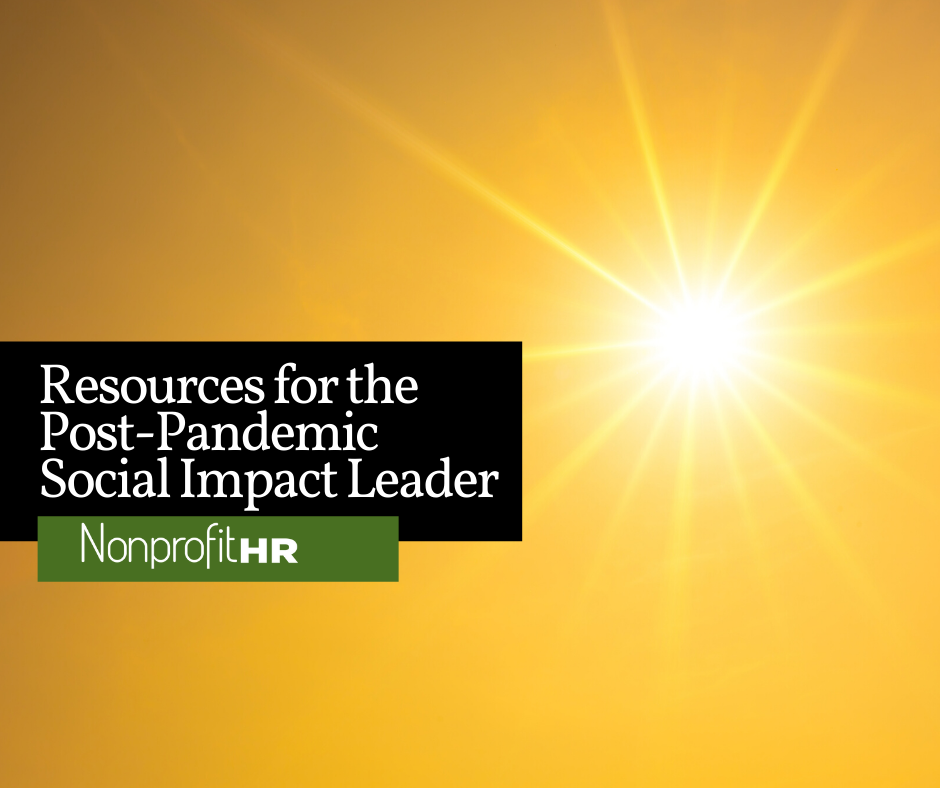WTOP: 5 ways nonprofits can…
I spent part of my weekend watching the news coverage of the Women’s March on Washington. I was deeply moved by the unity and power that women, men, children, young, old, straight, gay, Black, White, Latino, Asian and people of every rung on the economic ladder demonstrated to those who chose to watch.
Not only did Americans of every stripe and hue come together around common purpose and in a show of undeniable strength, but they moved others around the world to join them in making their voices heard.
The many issues that unified the marchers represented are the same issues that social sector leaders, staff, volunteers, boards of directors, donors and others champion every day. Issues as diverse as civil rights, women’s rights, economic justice, criminal justice reform and climate change, are at the heart of this movement.
Hundreds of thousands of people – if not millions – left the comfort of their homes, walked, drove and flew across the country and braved the streets of their cities for one purpose: to be seen and heard. Despite the diversity of those marching and the many causes they represent, they found a way to come together to send a very strong message to anyone who would listen – that they cannot and will not be ignored.
That got me thinking: what would happen if all 11 million-plus people working in the nonprofit sector – the nation’s third-largest workforce behind retail and manufacturing – came together to send a clear message to America, and more specifically the new President and his Administration? What if they sent the message that, without nonprofit talent, America’s social fabric would rip apart at the seams?
Without the 1.5 million-plus nonprofit organizations fighting in the trenches every day for everyday Americans, and often without the help of big corporate dollars or the power of the media capturing their every move, this nation’s poor, disenfranchised and marginalized would largely be neglected and left to fend for themselves. Without the nonprofit sector’s workforce of committed, hard-working, intelligent, purpose-driven talent, the many issues that people were marching for would have no power at all.
As we move into a new, highly uncertain and divisive era of this nation’s history, the health and strength of America’s social sector workforce could never be more important. Now, more than ever before, we need to invest deeply and meaningfully to ensure the attraction, development and retention of qualified, impactful nonprofit leaders, staff, boards, and volunteers. Now, more than ever, foundations, individual donors, corporations and others who support the social sector will need the nonprofit sector workforce to do what many believe the Federal government will no longer be invested in doing. Now, more than ever, children, the elderly, the disabled, the poor and the working poor, women, people of color, LGBT, immigrants, religious minorities, and countless others who make up “ordinary America” need the nonprofit sector workforce to be even better equipped to support their needs.
So what lessons can we, the nonprofit sector and those committed to working for and in it, learn from the Women’s March on Washington?
- Like the countless women, men and children who marched this past Saturday, we must speak unapologetically and with pride, power and conviction to anyone who will listen about the essential value of nonprofits and the nonprofit workforce. We must make a compelling, evidence-based case for why this nation can’t live without nonprofits and those who work for them. And once we’ve made that case, we need to be bold and unrepentant about sharing it.
- Those of us working for, in and with the nonprofit sector need to boldly refute the many falsehoods and myths perpetuated about nonprofits and the nonprofit workforce. We need to dispel myths of low pay, poor working conditions, lack of mobility and career development opportunities, unwillingness to be progressive in workplace practices and an inability to attract the best and the brightest. That is not the nonprofit sector that I know and have worked in for over 20 years. We must be more vocal than we ever have before about the strength, tenacity and power of the sector and why America needs a strong, vibrant, well-resourced nonprofit sector workforce.
- We need to remind ourselves and others every day that the nonprofit sector workforce matters as much as the corporate and public sector workforces. We need to remind ourselves and all of America that the work of ensuring equality where there is inequality, of ensuring justice where there is injustice, of protecting freedoms in the face of abuses of power, is as vital to the health and welfare of America as turning a profit and governing at the local, state and national levels. Like the women who organized the Women’s March on Washington and completely owned their power, nonprofit sector leaders and staff and those who support the sector, must own their importance. We must speak with confidence and clarity about our work and how without it, America will not be so great again. When we change the conversation about the nonprofit sector workforce, when we educate others about its size, power and the very necessity of its existence, we will command the attention and respect that the sector is due.
The unsung heroes leading and working in America’s community organizations, social and environmental justice movements, communities of faith, academic institutions, arts and culture and healthcare organizations hold an enormous amount of power and influence that must be leveraged. Our work is not easy and can’t be done by just anyone, but it can be done by us. Let us dig deep within ourselves, lock arms and move through the streets of America with confidence to do the work that we’ve been called to do with purpose and power.





























